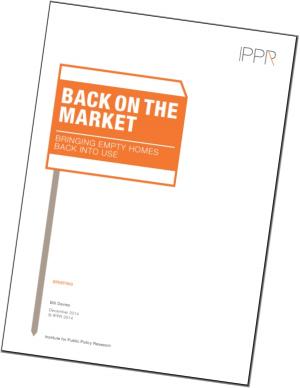
Find more posts
"Give councils flexibility on empty homes premium" says think-tank
Latest
January 4, 2015



Left-leaning think-tank the Institute for Public Policy Research is pushing for local authorities to be given more flexibility about how and when they charge the Empty Homes Premium. Key flexibilities being proposed include:
- a higher rate of Premium (on a sliding scale)
- the ability to introduce the Premium earlier
- flexibility around what counts as "occupation" (compared with the current disregard of periods only if they are briefer under six weeks).
